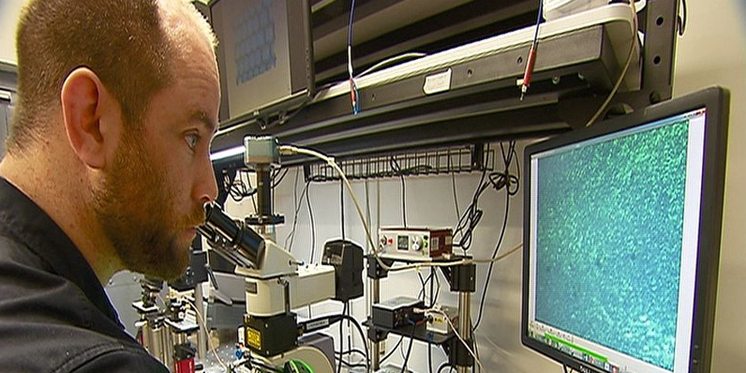In This Section
Scientists Discover way to Boost Life of Batteries

Scientists in Cork have discovered a new way to make Lithium-ion batteries with near record-length life using material found in sunscreen.
The method involves the use of titanium dioxide (TiO2), the naturally occurring material that is also capable of absorbing ultraviolet (UV) light. The University College Cork researchers, Dr. David McNulty and Dr. Colm O’Dwyer, found that when TiO2 is made into an ordered porous substance, it can charge and discharge over 5,000 times, equivalent to 13.5 years without any drop in capacity. Scientists are continually trying to develop batteries that last longer, but which are also environmentally friendly, light, safe and cost efficient.
As a result, the discovery will be of particular interest to the manufacturers of mobile electronics and embedded sensors, as the demand for longer lasting devices drawing more and more power increases. The 3D arrangement of the TiO2 nano-particles is created by filling in artificial opals made in the lab with the active battery material. These inverse opals are occasionally porous materials found in nature, in the iridescent parts of butterfly wings and peacock feathers for example.
According to the researchers, their battery is environmentally friendly as it does not contain any of the toxic materials used in traditional Li-ion batteries. The materials are also widely available, making them cheap to produce. Details of the findings were published recently in the journal Advanced Energy Materials.
Click Here to watch a video, with words from Dr. David McNulty and Dr. Colm O'Dwyer.
School of Chemistry
Scoil na Ceimic
Contact us
Second Floor, Kane Building, University College Cork, T12 YN60
